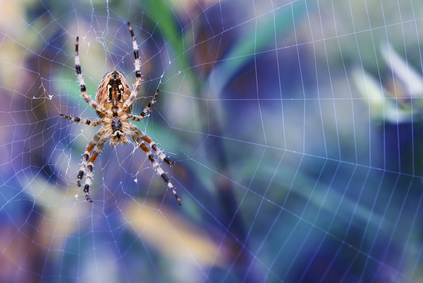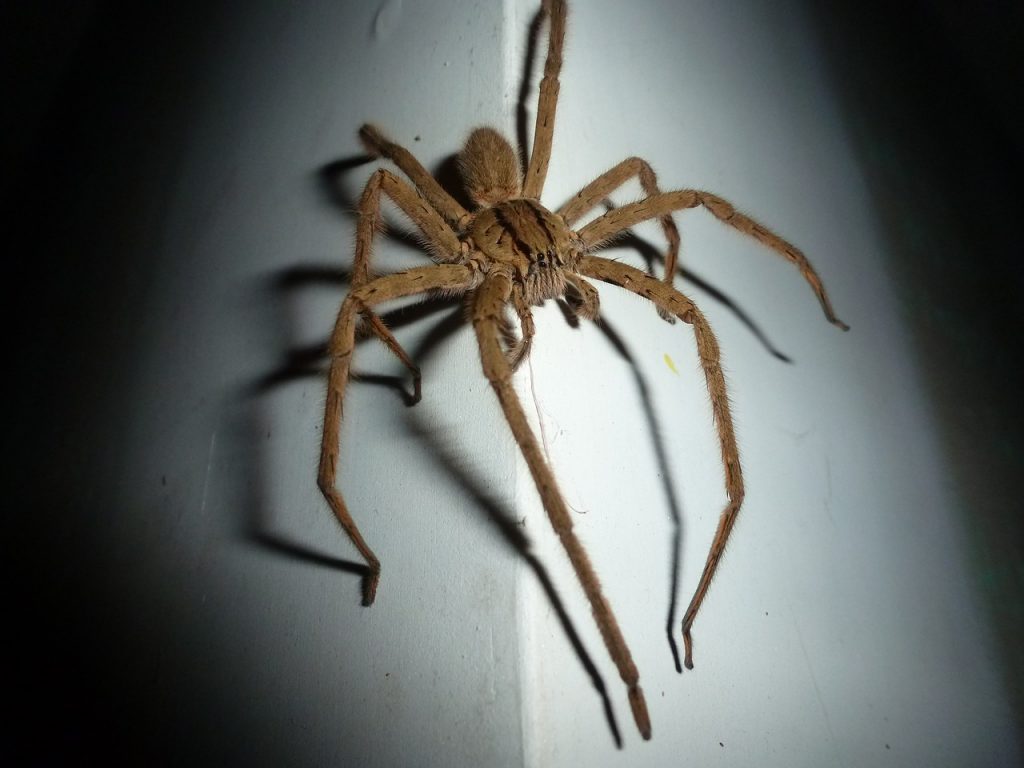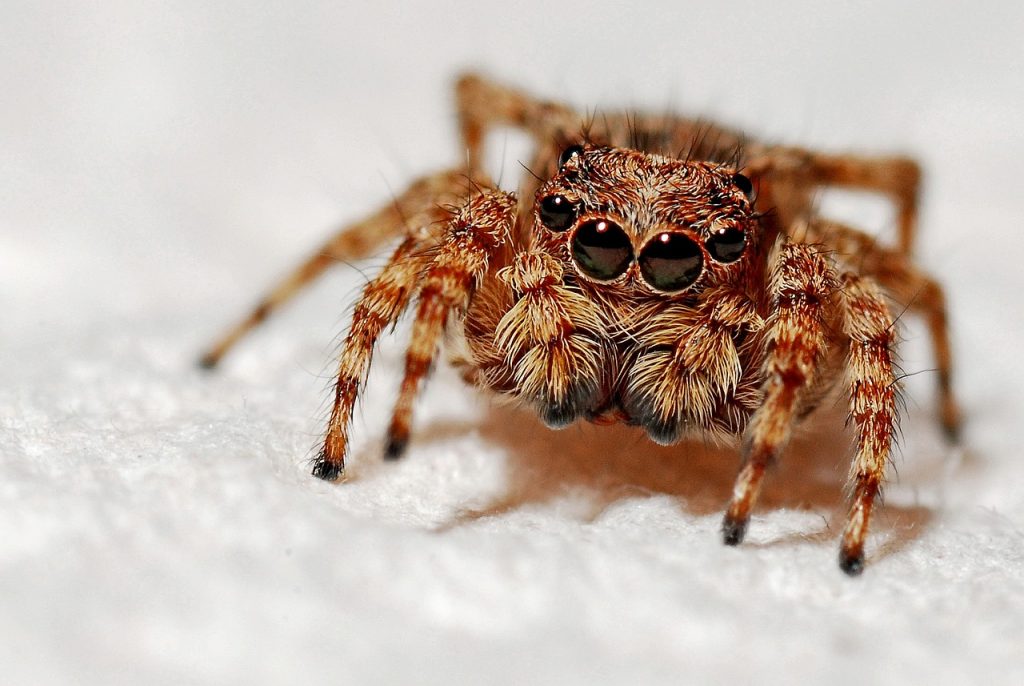Spider Season? Stay On Top Of The Web of Mystery They Seem To Be Spinning
- Esther M.
- Nov-09-2022
- Pest Control
Gaithersburg, MD stands out because it has an interesting population composition. In 2021, WalletHub ranked Gaithersburg the second in ethnic diversity among 501 largest cities in the US! So, if you have been searching for a place that has a multi-ethnic composition, look no further. The beauty about places like this is that there’s a lot to learn from the various cultures and people groups represented. Such beauty can be likened to a rainbow which is beautiful because of its different colors.
As winter sets in, all nature takes on a survival mode to withstand the dropping temperatures. Wild animals hibernate, while insects do the same in what is referred to as diapause. But what about spiders? Do they hibernate too? How do they behave when the temperatures drop? Read on to find out more about spider control in Gaithersburg, MD.
Does “spider season” exist?

Forget Halloween, when people use plastic spiders as props and decorations. Is it a coincidence that spiders seem to be on the increase around this time? Could they be responding to the Halloween costumes and decor? What is really happening? Find out in the following post:
Even though you’re bound to see spiders in your home throughout the year, the chances of seeing one crawl around the house heighten in the fall. But it’s not to scare you for Halloween – it’s to look for love. Or, in more proper terms, it’s when the eight-legged creatures begin to mate.
And if you do happen to spot a spider in your home this fall, experts caution you not to kill it – they’re mostly harmless and could help get rid of other pesky bugs…
Spiders typically mature in the spring or summer, said Jason Dunlop, a researcher from the Museum für Naturkunde in Berlin. When it gets closer to fall, mature male spiders that typically live only for a year leave their webs in search of a female.
“Females give off a chemical called a pheromone, a kind of perfume, which the males can sense with special hairs on their legs. The wandering males are basically sniffing around for a mature female,” Dunlop told USA TODAY.
Meanwhile, females stay by their webs and conserve the energy needed to lay eggs, said Rod Crawford, curator of arachnids at The Burke Museum at the University of Washington.
Female spiders can be found pretty much anywhere, inside or outside a home, which can be a rather daunting journey for a male trying to slide into their DMs, so to speak. That’s why if you happen to find one inside your home, it’s most likely a male just looking for a female. Read more at USA Today
Why do they come into your home?

Your home, admittedly, is comfortable. The fact that you live there means that the environment is conducive for living. Apart from the fact that your home has air conditioning that prevents it from being too cold in winter, it has other goodies that spiders appreciate. The following post gives more details about this:
Uncleanliness invites spiders into your home.
Spiders like to hide in dark, dusty, or dirty areas. Cleaning your home regularly, especially under furniture like chairs, couches, and beds, will deter spiders. Vacuum and dust in high and low corners where spiders weave their webs. Keeping the kitchen clean will reduce the number of other insects in your home that spiders eat. The cleaner the home, the less likely it is that you’ll see spiders…There is a steady food supply in your home.
Spiders eat insects. If there are insects inside a home, spiders will have a steady food supply. Keeping your home clean by sweeping up crumbs and wiping down the kitchen every time you use it is one way to make your home less inviting to insects. Inspect your home for water sources, places to hide such as piles of old magazines or cardboard boxes, or open containers of pet food. If you get rid of the spiders’ food supply, you can get rid of the spiders. Read more at Bobvila
Which two spiders are likely to enter your home?

In many cases, spiders are outsiders. They prefer the outdoor world to staying indoors. But with the drop in temperature over fall and winter, they need to survive. However, not all spiders are found in the home. Here are the top two spiders you should know of and the threat they pose to you:
American house spider
What they look like: These spiders are on the smaller side—about the size of a nickel—and have a round abdomen. They’re also usually grey and will have some white markings, says Marc Potzler, a board-certified entomologist and technical services manager with Ehrlich Pest Control. “Their web often looks very tangled or messy,” he adds.
Where you’ll find them: They like to hang out in dark, concealed areas. “They hide in corners, underneath cabinets, in basements, sometimes in garages around the windows where flies may be active,” Potzler says.
Can they harm you? Nope.
Wolf spider
What they look like: With over 200 species of wolf spiders crawling around, it’s no wonder that they range in size and appearance. “The largest species can be up to an inch and a half long,” explains Potzler. Wolf spiders come in the following colors: gray, brown, or black. And, since they’re hairy they can sometimes be mistaken for tarantulas. Also worth noting: “These are nomadic spiders that don’t spin webs to catch their prey—they hunt them down,” says Howard Russell, an entomologist at Michigan State University.
Where you’ll find them: You can find wolf spiders where other insects reside—like garages, basements, sheds, and other dark, enclosed areas, according to Potzler. And since insects frequent the outdoors as well, you can also find wolf spiders outside in various locations: In our around debris, underneath boards, or in gaps around your home.
Can they harm you? No: Russell assures that these spiders “would prefer to hide than bite.” Read more at Prevention
You can breathe out now- these spiders are happy to co-exist with you and not bother you.
However, if you are really afraid of spiders, you may not want to hear anything about co-existing with them. What to do? Call in the experts in spider control. Backyard Bug Patrol is your go-to solution for all pest issues, including Green Pest Control for spiders and other insects. Don’t wait another day before you call us for a spider-free home!
